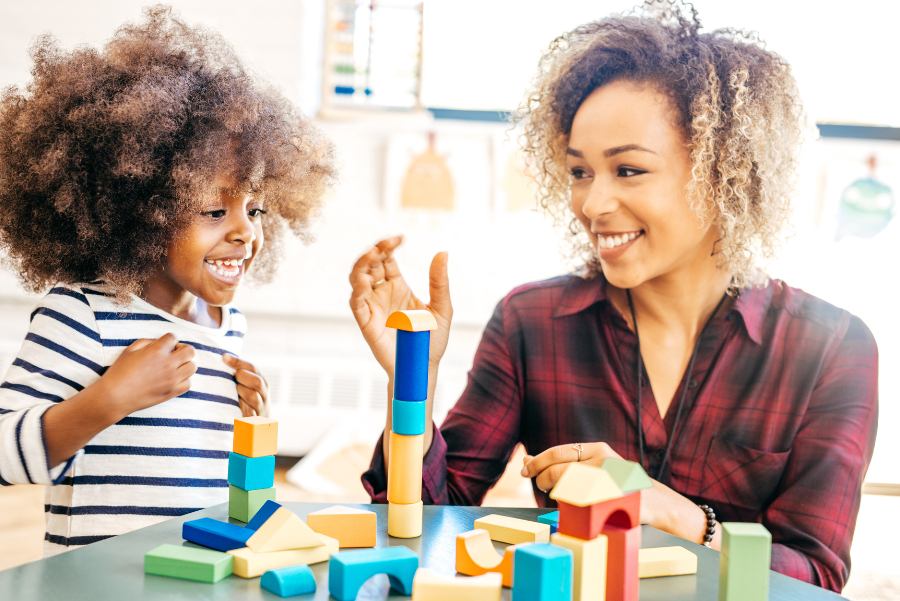
The Importance of Supporting Relationships and Attachment in the Early Years
WRITTEN BY: Antoinette Horrell
We are born to connect. As human beings we are relational, and we need biological, emotional and psychological connection with others.
We learn how to connect and create the patterns we form during our infancy and early childhood years.
These patterns and experiences become embodied in us and become the way we understand how the world and people work. Such early experiences with our primary caregivers teach us what to expect throughout life and how to build our relationships with everyone. The child that has developed a secure attachment pattern (from a close connection to his mother or father) has learned that his emotional needs will be met and then as an adult, he finds it relatively easy to form close friendships and doesn’t worry about rejection or exclusion.
Attachment is the relationship that parents and babies share together. It is when you see a baby look at their parent and they catch each other’s eyes in a wonderful gaze: the parent smiles and the baby smiles and then the parent kisses and the baby coos. Or, when an infant cry to tell their mother they are hungry, and she picks up the baby and provides a warm cozy snuggle and the baby is satiated with a full heart and belly.
This is the dance that creates the framework for the interactions that we have our whole lives and how we understand love. Child psychiatrist Dr Kaylene Henderson explains that when your child has a secure attachment to you, he is able to use you as a secure base from which to venture out, explore the world and his place in it. (A Dose of Awesomeness- Understanding Attachment).
When toddlers first attend playgroups it is important that teachers use a form of “intentional teaching” to ensure that the young children are supported and loved and feel seen and heard during their time at school and that the developing feeling of secure attachment is maintained and never threatened. In this way, the teacher’s interaction with the child must be closely observed – direct responses are incredibly important, so is their body language, choice of words, facial expressions, and actions need to be closely monitored and used appropriately to accurately express what is intended.
The children should feel safe and secure and have no difficulty understanding what is happening and why scenarios play out in the way that they do. The teacher becomes a role model to demonstrate effective behaviours – to support the children in understanding each situation that they find themselves in and teach them how to respond appropriately.
As an extension of the home environment, the playgroup supports this developing secure attachment and enables young children to build the vital, strong foundations, enabling them to create positive, adaptive, trusting relationships with people throughout their whole lives.
This is achieved by the teacher adapting some important practices:
- Comforting the child when they are physically hurt, ill, upset, frightened or lonely, and not shaming them for their feelings.
- Responding to and noticing the child at all times.
- Giving the child a sense of trust in the world and the people in it.
- Physically playing and sharing time, making eye contact, touching and sharing emotions.
- Laughing and sharing warm, joyful experiences together.
- Making them feel like they matter, and they are understood.
- Trying to be as predictable and positive as possible when reacting to the child’s behaviour.
- Never using fear tactics.
If we want to raise independent, secure, happy and positive children who later believe that they are lovable and worthy of support, that have a strong frustration tolerance, can tolerate ambiguity in relationships and work, can overcome the challenges that life throws in the way and who believe that the world is a safe and predictable place, then we need to focus on developing and maintaining healthy and secure attachment with our beautiful young children.
Our future depends on it.
References
Hal Shorey Ph.D. The Freedom to Change
Rebecca Eanes. Positive Parenting
L.R. Knost. The Gentle Parent
Gabor Mate Ph.D. Hold onto Your Kids
Leave a Reply
You must be logged in to post a comment.